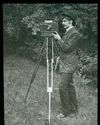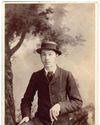The Panasonic Lumix DMC-FZ2000 arrives with a fresh optic and an even stronger focus on video than its predecessor. Matt Golowczynski takes a closer look.

When Panasonic’s Lumix DMCFZ1000 arrived two years ago, it was widely considered to be a fitting alternative to the Sony Cyber-shot DSC-RX10. With a similar 1in sensor but broader 25-400mm equivalent zoom, it held its own against its pricier rival.
Two years and a handful of newer competitors later, however, the need for an update was becoming obvious. The FZ2000 arrives with much the same idea as its predecessor, but with a newly developed lens that boasts a longer reach and the FZ1000’s already capable video specs bolstered with a range of improvements. Indeed, Panasonic goes as far as billing the camera as the ideal photo/video hybrid.
In addition to the Sony RX10, which is still available new, the FZ2000 has the second and third iterations in that series as competitors, together with Canon’s PowerShot G3 X. These are the only bridge-style models on the market to marry a 1in-type sensor with a superzoom optic.
Features
Despite a handful of key changes over its predecessor, one thing that doesn’t appear to have changed from the previous FZ1000 is the sensor. Panasonic has employed a 1in-type, back-illuminated 20.1MP CMOS sensor and this operates over the same ISO 125-12,800 range as before, with expansion settings equivalent to ISO 80 and 25,600.
Once again, this is powered by a Venus Engine, which allows for burst shooting at a respectable 12fps at full resolution, although this drops to 7fps should you wish to keep autofocus working throughout. This engine also provides the option to process raw images in-camera, with a healthy range of processing controls and the option to save images as new files or over existing ones.
Bu hikaye Amateur Photographer dergisinin December 31,2016 sayısından alınmıştır.
Start your 7-day Magzter GOLD free trial to access thousands of curated premium stories, and 9,000+ magazines and newspapers.
Already a subscriber ? Giriş Yap
Bu hikaye Amateur Photographer dergisinin December 31,2016 sayısından alınmıştır.
Start your 7-day Magzter GOLD free trial to access thousands of curated premium stories, and 9,000+ magazines and newspapers.
Already a subscriber? Giriş Yap

140 years of change
AP has become the world’s oldest surviving consumer photo magazine because we have moved with the times, says Nigel Atherton

Preserving history in platinum
A deep dive into the meticulous art of platinum printing, and the collaboration between the Royal Geographical Society and Salto Ulbeek. Mike Crawford explores how they brought historical photographs to life with enduring beauty and precision

Life in the past lane
What was life like for an amateur photographer in 1884? John Wade takes a trip back in time

Choice cuts
How many trillions of photographs must have been taken in the past 140 years? Amy Davies asked some of our regular contributors for their favourites....a difficult task, to say the least

How good a camera can you buy for just £140?
Three members of the AP team see what they can find for the money

Round Five: The Best of the Rest
The APOY judges choose their favourite images that didn’t make the top ten of our Landscapes category

Amateur Photographer of the Year
Here are the top ten images uploaded to Photocrowd from Round Five, Landscapes, with comments by the AP team and our guest judge

FILM STARS A lifetime of landmarks
Cameras that hit the headlines between then and now. John Wade is your guide

140 years of Amateur Photographer
As AP celebrates its 140th birthday next month, Nigel Atherton looks back at its glorious past

John Wade considers...World War II: Home Front 1940, by A.J O'Brien
Say the word 'Wall's' to those of a certain age and two things spring to mind: sausages and ice cream.